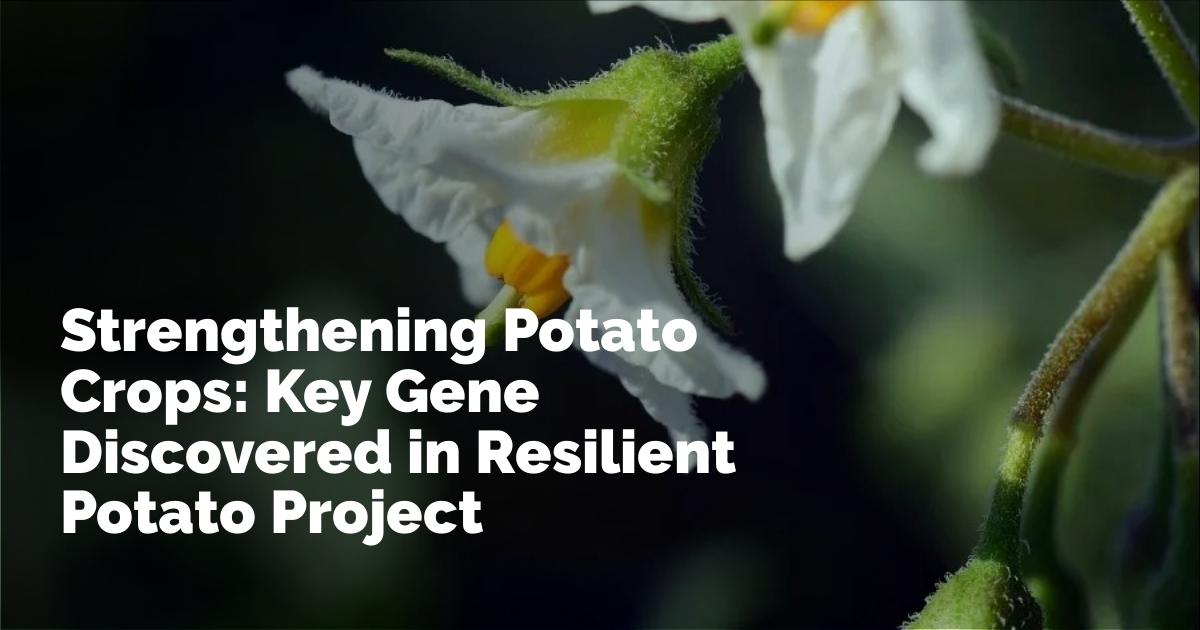Unveiling the Genetic Key to Resilient Potato Crops
In a groundbreaking discovery, researchers at the Swedish University of Agricultural Sciences (SLU) have identified a gene that could revolutionize the way we cultivate potatoes. This revelation has significant implications for enhancing food security in areas affected by climate variability and resource scarcity. By targeting a gene called Parakletos—which intriguingly translates to "helper"—scientists have unlocked new potential in strengthening plants' natural defenses against various environmental threats, including fungi and drought.
Revolutionizing Disease Resistance in Potatoes
The focus on making potato crops more resilient has been ongoing for years at SLU, where researchers have been employing advanced gene-editing tools like CRISPR to mitigate plant susceptibility to diseases. The recent discovery of the Parakletos gene marks a significant leap forward. This particular susceptibility gene governs the plant’s sensitivity to a range of threats, from fungal and bacterial diseases to salt and drought stress.
By effectively removing the Parakletos gene, researchers have found that potato plants enhance their natural defenses, sharply reducing the necessity for chemical treatments. This development is crucial as it could pave the way for crops that are not only more resilient to diseases but also better equipped to withstand the rigors of a changing climate.
Broader Implications for Crop Enhancement
While the study's immediate impact is evident in potatoes, the possibilities extend much further. According to Erik Andreasson, a leading figure in resistance biology at SLU, there is optimism that this gene-editing technique could apply to other essential crops beyond potatoes, such as tobacco. Sweden, a leader in the European Union for genomic research applications, stands at the forefront of employing these novel techniques for plant protection.
Initial field trials with potatoes have demonstrated promising results, with no adverse effects linked to the removal of the gene in place. However, since these trials were limited to one potato variety in a single location, further research is necessary to confirm the broader applicability of these findings.
Envisioning the Next Frontier: Project ‘Resilient Potato’
Looking ahead, the research opens new avenues for collaboration under the initiative dubbed "Resilient Potato." The project assembles several agricultural organizations interested in examining the extensive potential of this discovery. Desirée Börjesdotter, a vital partner and head of plant breeding at Lantmännen, emphasizes the excitement surrounding these developments, acknowledging their significant potential in improving crop resilience.
Understanding Potato Vulnerability and Gene Editing
As one of the world's most important staple foods, potatoes are susceptible to numerous diseases, often necessitating chemical treatments to ensure productive yields. Gene editing offers a transformative approach by removing susceptibility genes (s-genes), reducing the plant’s vulnerability to destructive diseases such as late blight, a notorious fungal problem.
By deploying a dual strategy—removing s-genes that make plants susceptible, and introducing resistance genes (R-genes)—scientists aim to bolster plant defenses against pathogens comprehensively.
The Power of Gene-Editing Technologies
Gene-editing technologies like CRISPR/Cas9 have empowered scientists with the ability to make precise changes in a plant’s DNA. This revolutionary technique involves modifying base pairs or creating specific mutations to alter protein production, thereby endowing the plant with beneficial traits. In the case of the Parakletos gene, targeted gene removal has reinforced the potato plant's innate defense capabilities.
Differentiating Cisgenic from GMO
A critical clarification arises when discussing genetic modifications: the distinction between cisgenic organisms and genetically modified organisms (GMOs). Cisgenic refers to modifications where the DNA comes from the same or a closely related species, such as a potato modified with a gene from another potato. Conversely, GMOs involve genetic alterations that incorporate DNA from different species, diverging from natural processes.
This fundamental discovery signals a move towards more sustainable agricultural practices, offering substantial benefits by reducing chemical reliance and adapting crops to future climatic challenges. The innovative work conducted at SLU exemplifies the potential for gene editing to drive sustainable agriculture, with the promise of significant gains for both farmers and global communities.
As science continues to delve deeper into the genetic complexities of plant resilience, the potential impact on our food systems, health, and economy could be profound, setting the stage for an agricultural revolution.
출처 : Original Source

